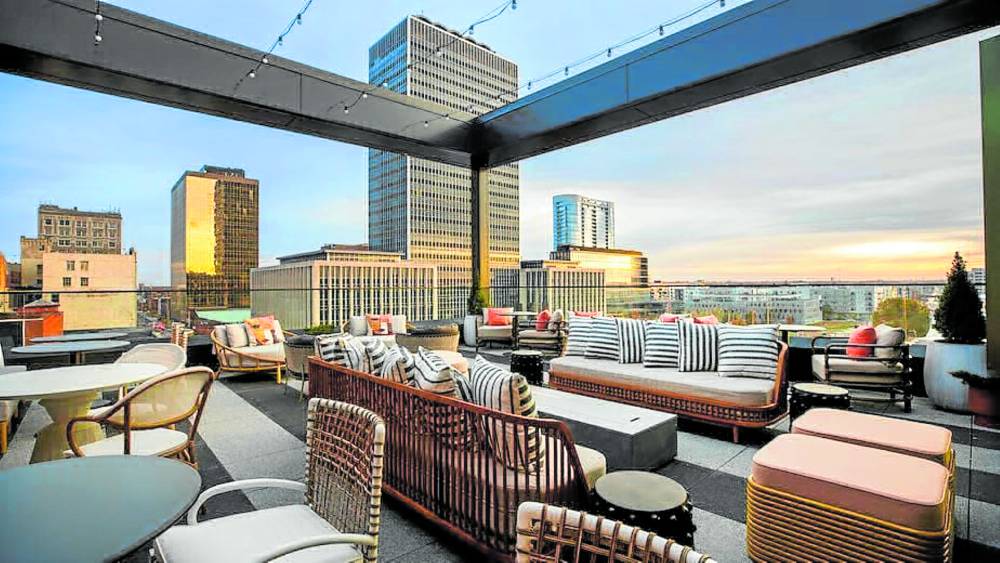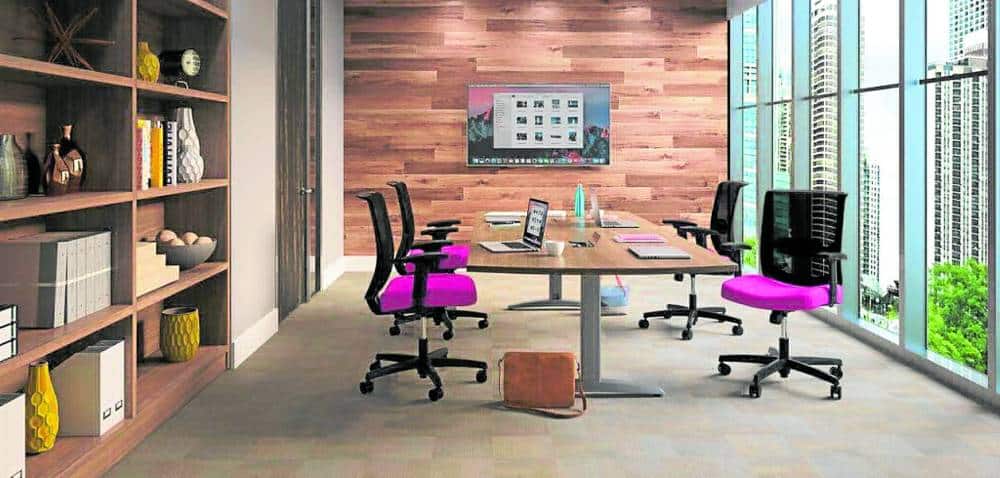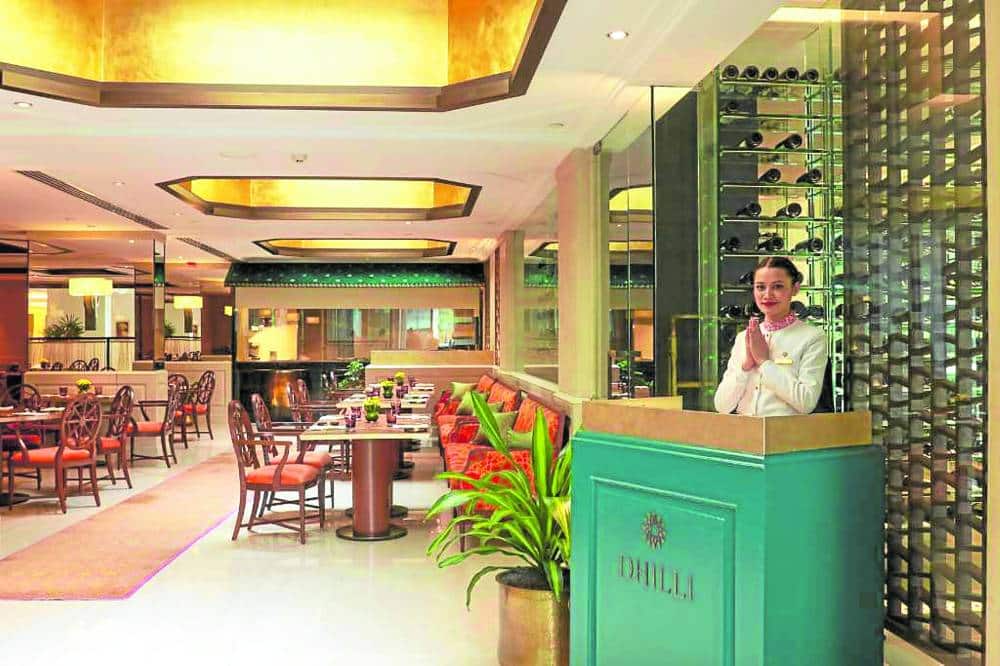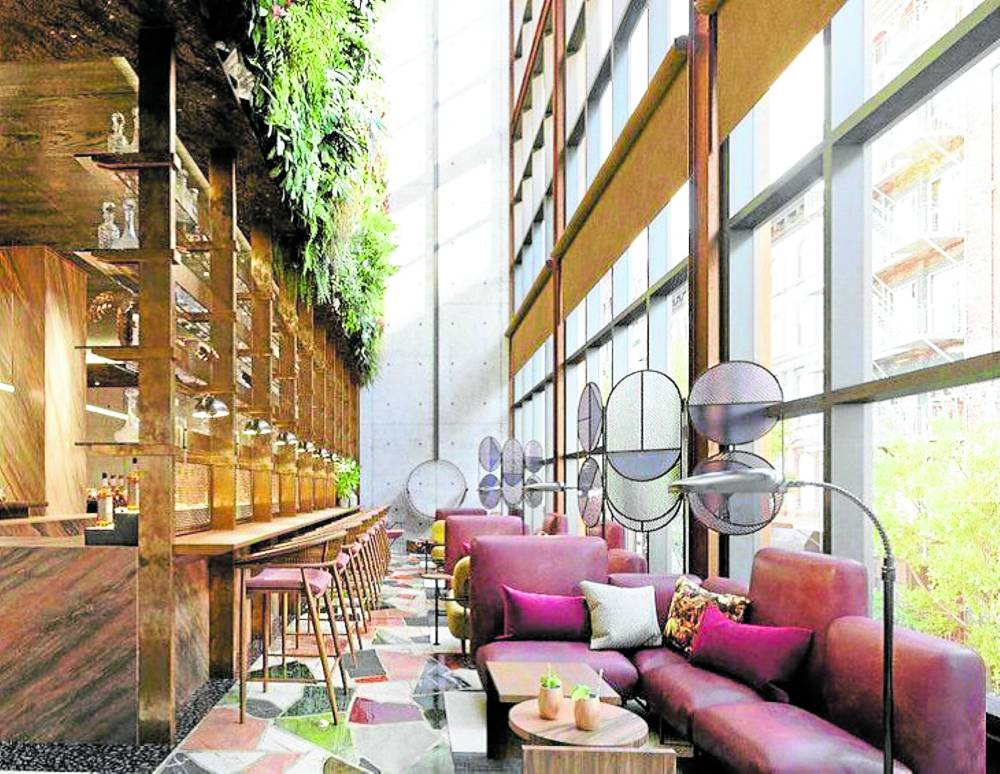Business travel hotels for creative collaborations

Incorporating outdoor meeting spots or rooftop terraces can enhance the atmosphere further. (https://www.hotelindy.com)
Today’s business travelers seek destinations catering to their professional and personal needs.
To truly stand out, business leisure hotels must go beyond the conventional offerings of boardrooms and beds. They should create an environment where the dynamic energy of work blends with the serene comfort of a leisure escape. By designing spaces that balance corporate efficiency with warmth and well-being, these hotels can become ideal retreats for travelers managing multiple roles.
Finding balance between business and comfort
Start with the lobby, which is often the first point of contact.
Imagine walking into a space where a traditional business hotel’s sleek, polished surface meets the plush comfort of a resort. Instead of the rigid, minimalist lines often seen in corporate settings, opt for a blend of contemporary, soft finishes. Rich wood textures, strategically placed greenery, and natural light create a severe and serene balance.
Designers can also use varied seating arrangements, some nooks for quiet work and others for casual conversations, to make the lobby more humanized and multifunctional.
Article continues after this advertisement
One challenge in designing business leisure hotels is fostering a cozy environment supporting practical business activities. (https://noltsofficefurniture.com)
A better place to stay
Guest rooms should also cater to this dual-purpose concept, providing a comfortable and relaxing environment.
Article continues after this advertisementAmbient lighting and cozy furnishings can soften the atmosphere that functions as a workspace. High quality bedding, adjustable lighting, and small touches like coffee table books or local artwork bring warmth to an otherwise efficient space. This layering of elements not only supports productivity but also invites relaxation.
Spaces for deal-making that feel personal
Meeting rooms that can quickly transform from formal boardrooms to intimate lounge-like settings make it easier for guests to transition between negotiation and collaboration, offering a versatile and accommodating space.
Movable partitions, comfortable lounge chairs, and abundant natural light can make these areas feel less imposing. Creating smaller breakout spaces, such as a cozy corner near a fireplace or outdoor cabanas, may help foster more informal, relaxed discussions that often lead to deeper connections and successful deals.
These spaces become places where creativity flows, giving participants a sense of comfort while allowing their ideas to flourish.
The indoor-outdoor feel
Incorporating outdoor meeting spots or rooftop terraces can enhance the atmosphere further. Fresh air, well-designed landscaping, and a touch of informality can do wonders for a meeting’s dynamic, making participants feel more at ease and more open to collaboration.
Cozy yet collaborative environments
One challenge in designing business leisure hotels is fostering a cozy environment supporting practical business activities.
To solve this, designers should focus on versatility. Cozy corners with overstuffed chairs and small tables can serve as private spots for making calls or catching up on emails while offering a less rigid environment.
For larger gatherings, think beyond the standard conference room setup. Instead of sterile, identical meeting rooms, consider incorporating natural materials, varied seating arrangements, and unique décor that reflect the local culture.
Food and friendships
Restaurants often serve dual purposes as places for casual dining and deal-making venues. Designing spaces that seamlessly move from breakfast networking to evening leisure, with lighting and access to electrical outlets and internet throughout the day, ensures that the environment remains functional and inviting.
The author (www.ianfulgar.com) is a leading architect with an impressive portfolio of local and international clients. His team elevates hotels and resorts, condominiums, residences, and commercial and mixed-use township development projects. His innovative, cutting-edge design and business solutions have garnered industry recognition, making him the go-to expert for clients seeking to transform their real estate ventures

